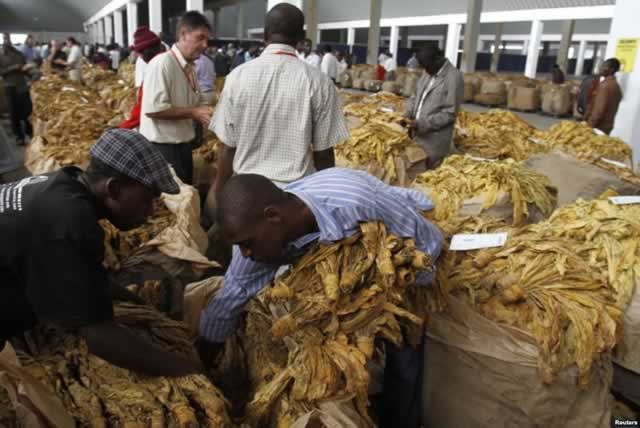Gender inequality fuelling HIV, Aids epidemic

 Sukulwenkosi Dube
Sukulwenkosi Dube
GENDER inequality has been viewed as one of the major reasons why women account for most HIV and Aids cases recorded in the country.
Women, mostly those in rural communities, fail to protect themselves from HIV infection because of the gender disparities existing in their societies.
There still exists in rural communities, the cultural orientation that men are the decision makers in the homes.
This has instilled fear in women to even make suggestions on taking up HIV prevention methods.
The problem with men being the major decisions makers, is that they are reluctant to take up HIV related education.
District Development Officer for Bulilima in the Ministry of Women Affairs Gender and Community Development, Dzina Ndebele, said unequal gender roles which existed mostly in rural communities were putting women at risk.
“Gender inequality is fuelling the HIV/Aids epidemic with women and girls being more at risk than their male counterparts. Women and girls constitute the majority of new HIV infections not only in Bulilima and Mangwe but in the whole of Southern Africa.
“Women also carry a heavy and growing burden of HIV related care and support often due to culturally defined, unequal roles,” said Ndebele at a recent meeting on Gender and HIV issues in Plumtree.
Discussions during the meeting revealed that some women were not taking up preventive measures following directives by their spouses for them not to.
District Aids Coordinator for Bulilima Ronald Hanyane said they received a poor response from some communities under the PMTCT programme.
“We have strategies of preventing HIV infections that we rolled out to communities. An example is the strategy of preventing mother to child transmission which requires women to visit the antenatal clinic during the period of pregnancy.
“This programme was specifically made so that pregnant women who are HIV positive cannot pass on the virus to their unborn babies. The problem is that some women are not taking up this programme as expected because of cultural initiatives and gender disparities,” said Hanyane.
He said some women were refusing to visit clinics without the consent of their spouses.
“Some pregnant women do not turn up in clinics at all unless with the approval of the husbands. The problem is that women are not able to make such crucial decisions on their own which puts their unborn babies at risk.
“We encourage women to visit the clinics at the early stages of their pregnancy but some delay because of the resistance from their husbands. Some are ordered not to come at all by their spouses. In other cases women do not come to clinics at all because some of them get pregnant out of wedlock which is socially unacceptable. As a result they conceal their pregnancies,” he said.
Hanyane said men in rural communities had a crucial role to play towards reducing HIV infections but they were not forthcoming.
“It appears that men are the major decision makers when it comes to taking up HIV prevention methods but the problem is that they are not forthcoming in receiving education on HIV related issues.
“They are reluctant to participate in HIV related programmes within their areas. This causes a problem as they are supposed to make informed decisions based on the education they would have received,” he said
District Forestry Extension Officer Fortunes Matutu said some men had dismissed HIV related programmes as tailor made for women and children.
“The problem is that men seem to have a negative attitude when it comes to HIV related issues. They are not willing to come out in the open on their status.
“They put unnecessary emphasis on the need to protect their images within their society. They regard opening up as a sign of weakness but in the process they put the lives of their spouses and children at risk. This attitude by men is a major setback in the fight against HIV as their cooperation is needed as they are key players because of the authority they yield,” said Matutu.
“Some men have dismissed HIV related programmes as initiatives targeting women and children. They feel that they are left out as most programmes are facilitated by women than men.
“It therefore becomes an uphill climb for them to share their problems and experiences with women. Men are sensitive when it comes to such issues therefore there is a need to consider the strategy used to reach them when tackling HIV related issues.”
It also emerged during the meeting that men working in the diaspora where hiding their status from their wives after being tested in neighbouring countries.
A participant at the meeting said men who were getting tested in neighbouring countries were made to believe that their status was supposed to remain a secret.
As a result they were hiding their status from their wives even when HIV positive.
Statistics from the Zimbabwe National Network for People Living with HIV (ZNNP+) in Bulilima and Mangwe Districts showed that men comprised 22 percent of HIV support groups in the two districts.
The two areas combined have total of 142 groups comprised of 2,055 members.
Of these members 1,590 are women while only 466 are men.
Gender District Development Officer for Mangwe in the Ministry of Women Affairs, Gender and Community Development, Lullaby Chawoma, said the reason why women in rural communities were hesitant to make individual decisions on HIV related issues was because of gender-based violence perpetrated against them.
“There are number of gender-based violence cases which happen in rural communities. Some cases are reported while others are never. The reason why some cases are not reported is because gender-based violence against women is being treated as a culture than an offence.
“Increased levels of violence including intimate partner violence within homesteads make it difficult for women to negotiate safe sex in their relationships. That is why there are cases of deliberate infection,” he said.
“This puts women at risk off acquiring STIs and HIV. Violence against women and girls perpetrated by way of rape also puts females at risk.
“There are also some harmful traditional practices linked to gender-based violence which put the girl child and women at risk. An example is forced marriages, widow ceremonies and honour killings.”
The District Administrator for Bulilima, Ethel Moyo said it was unfortunate that women were not reporting these abusive practices which were putting them at risk.
“Women mostly in rural areas, are at a risk of being infected or re-infected because of these traditional practices. Girls are afraid to report rape cases by their relatives or parents just because culturally they look up to these people as their elders and they idolise and respect them.
“A number of children get infected with HIV while still in school just because of these cultural beliefs. On the other hand some women are living in denial. They overlook abuse by their abuses as they view it as part of their societal practices,” she said.










Comments